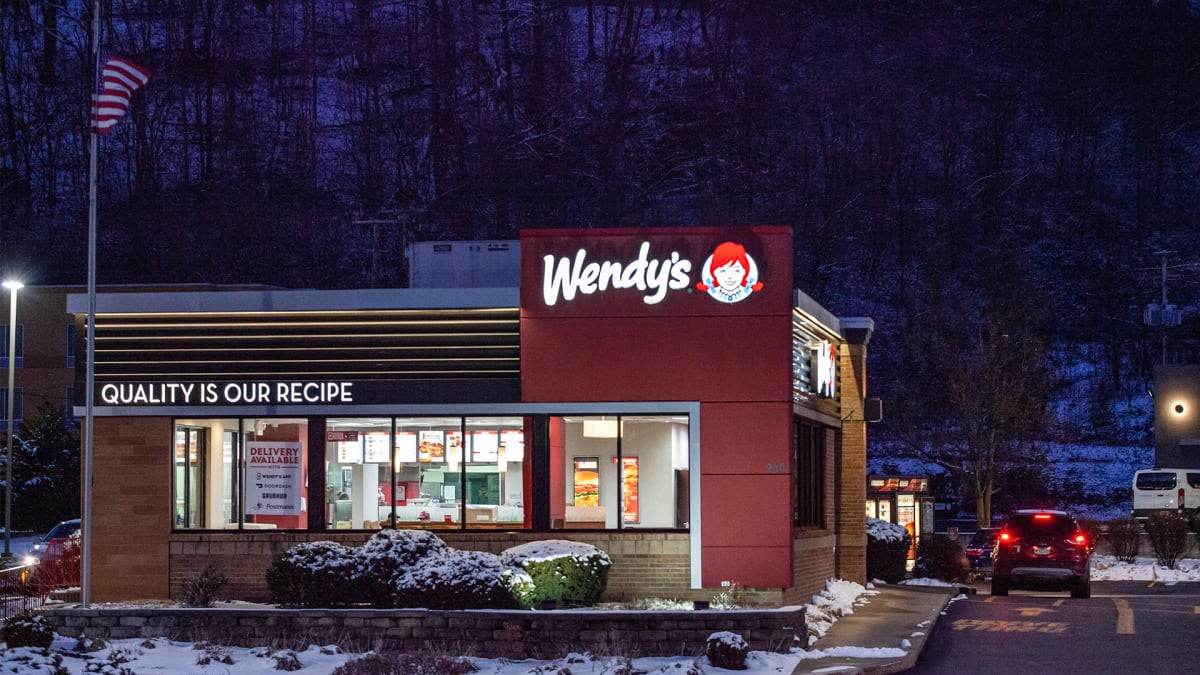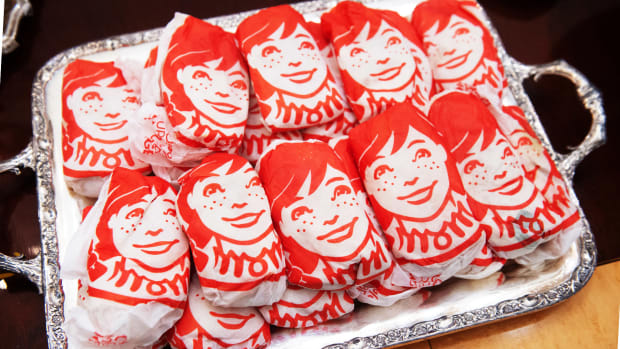
Wendy's follows the Howard Stern model of operating -- or at least the model the famed radio host followed when he was the new kid in town.
In his early days, when Stern went to a new market, he targeted whoever had the largest audience, mocking that show and making clear that his was better.
That is how Wendy's (WEN) has often approached its rivalry with McDonald's (MCD). The No. 2 fast-food burger chain has used this tactic multiple times.
It ran a Super Bowl commercial in 2018, mocking McDonald's' frozen hamburger patties, and it attempted to establish its latest take on fries by buying billboards that mocked its rival's beloved French fries.
DON'T MISS: McPizza Is Back! McDonald's Menu Tries a New Take On a Classic
Wendy's in 2020 went back to that well when it reentered the breakfast space. Chief Marketing Officer Carl Loredo's comments at the time never mentioned McDonald's but made clear whom he was talking about.
"To date, some others in the category have let breakfast consumers down by offering breakfast sandwiches with frozen, folded eggs and pre-cooked bacon. Today, all that changes," he said.
"We are known for our high-quality food, and breakfast is no different. Try any of our craveable items – we believe this menu will become your favorite."
The strategy has worked, to a point. Wendy's has steadily built market share in the morning, although that does not appear to have come at the expense of McDonald's.
Still, the chain leveraged its better-known rival to make a mark in a new daypart, and it's planning to do that again as it makes a play for late-night dominance.

Image source: SAUL LOEB/AFP via Getty
Wendy's Wants to Go After Late-Nights
While McDonald's does have some 24/7 restaurants and hours are set by franchisees, not corporate, most of the chain's locations close by 11 p.m. or midnight at the latest. That creates an opening for a chain to stay open later.
Wendy's has experimented with keeping its drive-throughs open until 2 a.m. During the pandemic the chain had to pare back the project due to labor issues, but it's an area Chief Executive Todd Penegor talked about during his company's first-quarter-earnings call.
"After diligent preparations to ensure our customers will have a great experience, we plan to promote Wendy's late-night business this summer," the executive said.
"During the first quarter, we already saw an uptick in sales in this daypart, driven by a return to more normalized late-night hours, local advertising, and our growing late-night-delivery business."
The Wendy's Formula Is Simple
When you own a food business, you have expenses during hours when you are not open. Then when you're open, you have added costs in both staff and utility overhead, not to mention prepared food that does not sell.
The challenge is making early-morning and late-night hours economically worthwhile. And to do this, Wendy's must balance costs against sales.
Penegor is confident that Wendy's can grow its overall sales by operating more hours.
"Now that we've got ourselves staffed appropriately as we look at where that late-night business is, not only what we can do through the drive-through with traditional drive-up customers, but what we know we can continue to do with the momentum that we have on the delivery business," he said.
The CEO did acknowledge that he's not entirely sure how big the opportunity in late-night is.
"The size of the prize [is] hard to quantify, but when I start to look at where we have some big growth drivers, late night is going to be one of those and breakfast will continue to be one. And we'll continue to work hard to continue to win like we have been at lunch and dinner," he added.
Get investment guidance from trusted portfolio managers without the management fees. Sign up for Action Alerts PLUS now.







